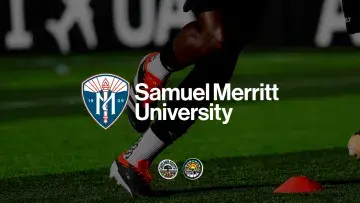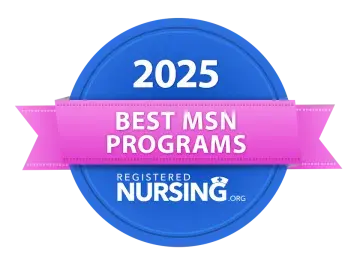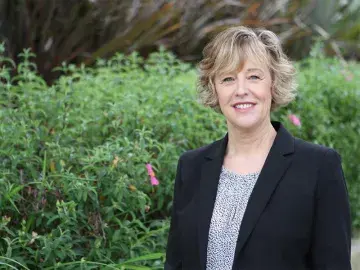"Engage in the Practice of Self-implication:" 3 Questions for Michael Benitez Jr.
To help celebrate Hispanic Heritage Month, Samuel Merritt University (SMU) invited Michael Benitez Jr., a nationally renowned social justice educator and activist-scholar to speak at the Oakland campus’ Health Education Center Sept. 29 at 6 p.m. The two-hour event is free and open to the public.
Benitez is the Dean of Diversity and Inclusion and Chief Diversity Officer at the University of Puget Sound and his discussion is titled, “Identity Politics and Whiteness in Latino/a Culture: Deconstructing Conditions of Race in ‘pero somos Latino/as’.”
Benitez took time to answer three questions by email.
 Q: SMU is preparing the next generation of healthcare professionals, many of whom will work with underserved patients and communities. How do you hope your ideas and messages from your discussion will show up in how our students view or treat their future patients?
Q: SMU is preparing the next generation of healthcare professionals, many of whom will work with underserved patients and communities. How do you hope your ideas and messages from your discussion will show up in how our students view or treat their future patients?
A: My hope is that I can help increase and strengthen students’ cultural literacy and awareness and critical thinking skills that inform how they interact with, perceive, and treat their patients. My ideas and message, I believe will be valuable for how future healthcare providers perceive patients from diverse backgrounds and go beyond. In this case, and given that I have been asked to provide this lecture during Latinx Heritage Month, I will place a large focus on what the importance of understanding demographic shifts in a continuously changing national landscape means. I also hope that the next generation goes out into the world as prepared and informed and caring citizens with deeper understandings of diversity, equity, and inclusion and what this work needs to look like, beyond the capitalist model that does not account for patients’ humanity. That part of their roles as healthcare providers is not only to gain a deeper cultural understanding of the patients they are serving, and a solid foundation of the work, but a deeper sociopolitical and systemic understanding of patients’ needs and our need to meet their needs.
Q: What two or three specific message do you have to them, tomorrow’s healthcare workers, on how they can be more prepared beyond their textbooks?
A: 1) Understanding of the value of being involved in and engaged with the communities they serve. Get to know the communities they serve and the challenges they face.
2) The capacity for awareness and self-assessment of one’s own beliefs about the needs of the communities and patients they serve. Cultivating trust in the provide/patient relationship, beyond just seeing them as patients is key. Particularly, having the ability to connect with them. Many individuals seek healthcare services feeling like they have to not because they need to. Listening to them with intention matters. Culturally competent healthcare providers actively engage in the process of becoming aware of their own assumptions about human behavior, values, biases, preconceived notions, personal limitations.
3) A consciousness of the dynamics inherent when people of groups interact, knowledge of the role power and culture play in human society/ relations and an appreciation of, and ability to adapt to, varying intercultural communication and learning styles. Healthcare provider should strive to develop their cultural competence and actively develop and practice appropriate, relevant, and sensitive strategies and skills in working with culturally diverse students, families, communities and colleagues.
Q: When they go out into the world as a new healthcare provider, what do you think is the most essential skill they should carry with them?
A: In my opinion, the most essential skill I believe they should carry with them is the ability to engage in the practice of self-implication. Most specifically, to be able to understand how to situate themselves and their identities and position within a larger/structural context. Many individuals and groups who seek care face many challenging systemic conditions that healthcare providers need to account for as they think through the needs of their patients. Patients in urban and rural communities many times don’t have the resources or are exposed to living and working conditions that increase the likelihood of need to seek healthcare services, without been provided the resources to receive what they need. This said, it is important that we understand self-implication as a skill not only necessary for growth and personal development, but to be able to hear their patients out in a way that might challenge how professionals are trained.


